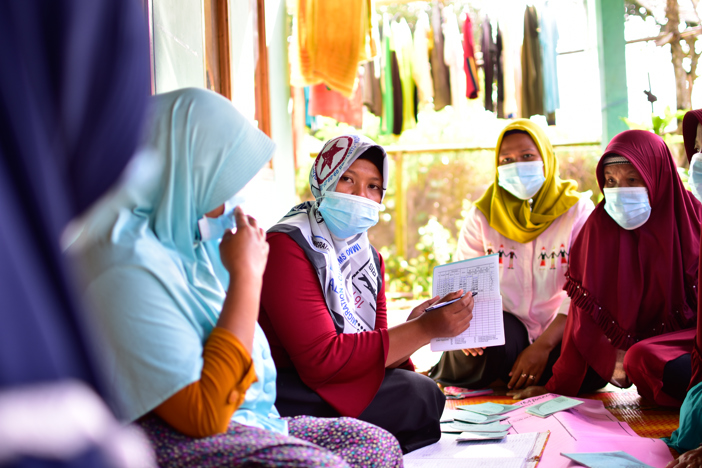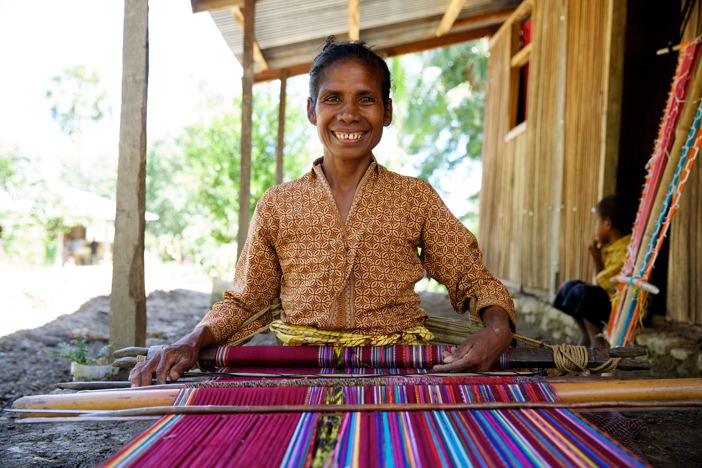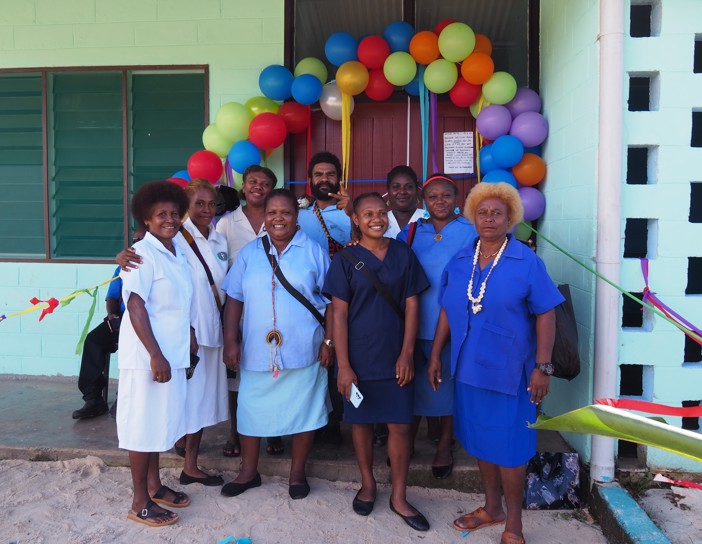Pope Francis visited Indonesia, Timor-Leste, and Papua New Guinea during a month-long apostolic journey in September.
The footprint of the Church is large in these countries, which are home to programs supported by Caritas Australia, the aid and development agency of the Catholic Church, as well as millions of Catholics.
Across the world, according to the Pew Research centre, the Catholic Church provides around 25 percent of all healthcare globally, with this rising to 40 percent in some developing and rural areas. Church networks have also provided education, shelter, and guidance to all of those in need, regardless of their faith.
Caritas Australia in Indonesia
In Indonesia Caritas Australia supports the Laz Harfa Economic & Health Development Project among others, which aims to help vulnerable families increase their income and become economically resilient. It also helps families stay healthy through initiatives such as improved access to safe drinking water and latrines.
One such woman is Tarsini, a rice farmer who was struggling to make a living in a rural village in Indonesia. With her husband in irregular work and a weak local economy, the couple’s financial future was uncertain, and they were forced to take out loans to cover their daily living expenses. This made them vulnerable to high interest and debt - and so they experienced periods of extreme poverty.
Tarsini joined a savings and loans group, facilitated by Caritas Australia and its local partner, Laz Harfa. Here, she participated in financial literacy, accounting, and entrepreneurial skills training - invaluable skills in gaining financial stability and independence.
The impact on Tarsini and her family has been profound. Today, Tarsini is debt-free. She runs her own thriving business and is also teaching financial management to other women in her community.

Tarsini in Indonesia leads a Savings and Loans Group in her local community. Photo Credit: Caritas Australia.
Caritas Australia in Timor-Leste
In Timor-Leste Caritas Australia supports a variety of initiatives including a Protection Program that includes shelters for women fleeing violence. The program also offers practical support for survivors such as savings and loans and small businesses training, as well as training in gender-based violence prevention.
This program is supported by Caritas Australia’s generous donors, as well as the Australian Government through the Australian NGO Cooperation Program (ANCP).
Recently the Timor Leste protection program hosted a visit from CatholicCare NT, an organisation that has been operating in the Northern Territory for 30 years, delivering gender-based violence service including men’s behaviour programs and safe houses.
It was an opportunity for Catholic organisations here in Australia and overseas to share knowledge and expertise around running effective safe houses for those escaping gender-based violence. This was important given that 59 percent of girls and women in Timor Leste have experienced gender-based violence, and with rates of domestic violence in the NT being the highest in Australia.

Martina a beneficiary of the Timor Leste Protection Program weaving traditional cloth. Photo credit: Caritas Australia.
Caritas Australia in Papua New Guinea
In Papua New Guinea, one key partner is Catholic Church Health Services, a provider of healthcare and training services across Papua New Guinea. Most of its services are smaller health facilities serving rural populations – which make up 80 percent of the total population - including 45 health centres, 101 sub health centres and 91 aid posts.
One of these health centres is Lemakot Health centre. The centre at Lemakot was first established as an aid post in 1912 and by the 1970s, under the stewardship of the Missionary Sisters of the Most Sacred Heart of Jesus, it became the Sacred Heart Health Centre. The last maintenance work there took place in 1987, until this year when funding from Caritas Australia and Catholic Church Health Services saw the roof replaced.
Prior to this rainwater was leaking into treatment rooms and equipment storage areas, meaning nurses were having to manage buckets of water and fight to keep areas dry for patients. There was no running water because harnessing rainwater runoff from the rusted and holey roof to fill water tanks was not an option. Without watertight buildings, a safe electricity supply was also not possible.
At another health centre in Aitape, Caritas Australia and CCHS have also worked on establishing water tanks and running water. A new partnership with the Albanese Government is also set to see off-grid renewable energy installed, providing a reliable and low-cost energy source.

Matron Florence Copland with staff from Lemakot Health Centre at a reopening ceremony following the completion of a new roof. Photo: Caritas Australia.
Caritas Australia supports locally led initiatives across 36 countries, through which 760,000 people in need were supported around the world last year. Caritas Australia is part of the Caritas Internationalis confederation of over 160 members who are working at the grassroots in most countries across the world.
Along with your generous support, this program is supported by the Australian government through the Australian NGO Cooperation Program (ANCP).


















